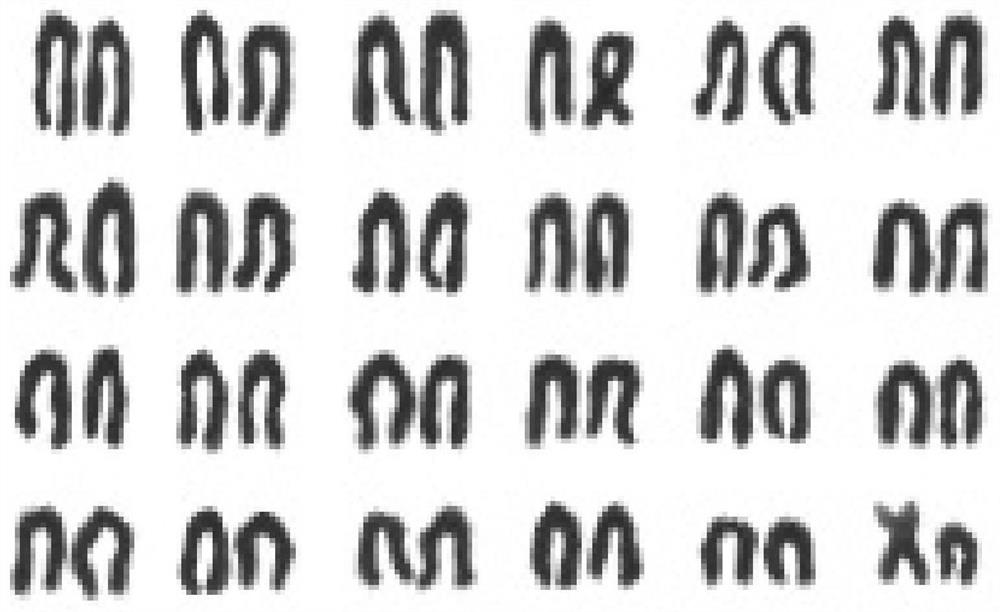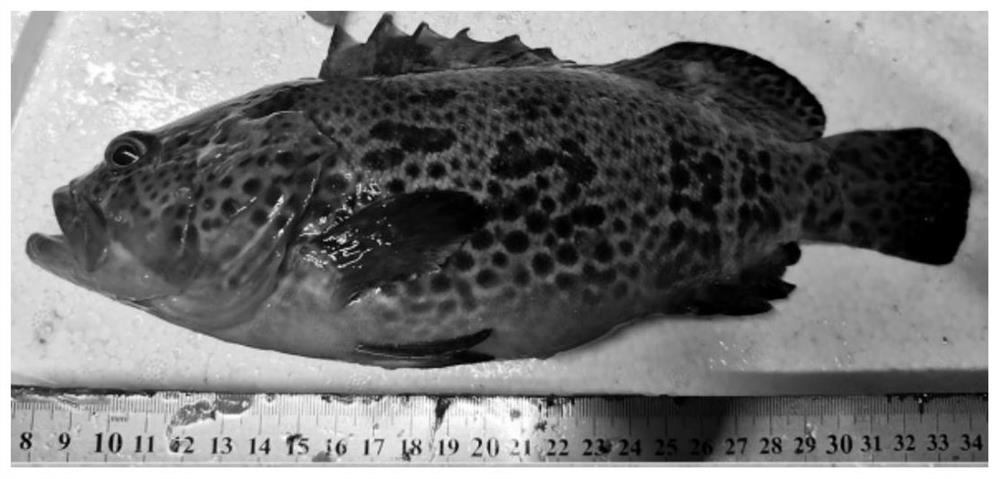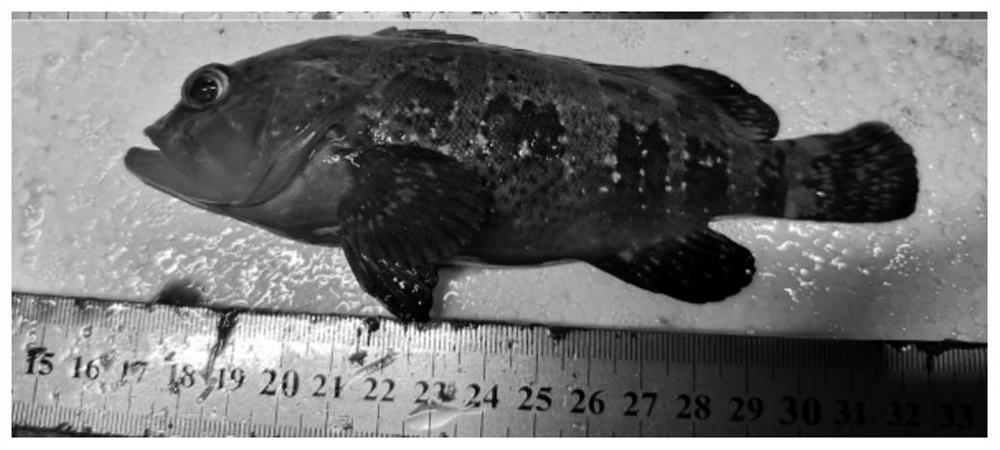Crossbreeding method of hypoxia-resistant epinephelus awoara
A technology of blue grouper and hybrid breeding, which is applied in fish farming, application, climate change adaptation, etc., can solve the problems of low breeding efficiency and slow growth of blue grouper, and achieve high market acceptance, considerable economic benefits, and significant The effect of growth advantage
- Summary
- Abstract
- Description
- Claims
- Application Information
AI Technical Summary
Problems solved by technology
Method used
Image
Examples
Embodiment 1
[0060] Embodiment one blue body large grouper and blue grouper are cultivated
[0061] The breeding environment of blue-bodied grouper is factory farming. The size of the breeding pool is 6m×6m×3m. There are 30 blue-body grouper in each pond, and a total of 80 blue-body grouper. 50-70cm, weight 20-30Kg. The dissolved oxygen (DO) in the pool is 7-10mg / L, and the water exchange volume is 3-4m 3 / h, using natural light. The water temperature is 23-24°C in October of the first year, and gradually drops to 18-20°C in December, and then gradually rises to 25-26°C in March of the next year; When the water temperature is stable at 25-26°C, mature male fish can be selected to collect semen. Wherein, the bait fed to the parents is any one of mackerel and mackerel or mixed in any proportion of the two, and the feeding amount is about 2-3% of the body weight of the parent fish. Pour the pool regularly every day to keep the water fresh.
[0062] The blue grouper is cultured in cages, ...
Embodiment 2
[0063] Example 2 Cryopreservation of the sperm of the blue-bodied grouper
[0064] (1) Acquisition of mature sperm
[0065] Under the artificially controlled environment, the sperm production time of the blue-bodied grouper extends from April to mid-September. At this time, the precious and small amount of blue-bodied grouper sperm can be preserved for a long time by freezing sperm technology, which can be used Insemination with blue grouper eggs in the following year.
[0066] The semen is collected every half month during the reproductive season, and the male fish that have collected the semen are put into another fish pond with fresh water quality. Before semen collection, MS-222 was used to anesthetize the whole pool. The male fish was placed on the delivery bed, and the abdomen was squeezed by hand. Mature males with semen flow were selected, and the semen was obtained by squeezing the abdomen. During the process of semen extraction, sea water should be avoided, otherwi...
Embodiment 3
[0075] Example 3 Artificial insemination of blue-bodied grouper frozen sperm and blue grouper eggs
[0076] (1) blue grouper induced labor
[0077] When the water temperature reaches 23-26°C in April, select a well-developed female blue grouper with a swollen abdomen; inject chorionic gonadotropin and gonadotropin-releasing hormone analogs into the base of the pectoral fins, and the dose of chorionic gonadotropin is 200 -300IU / kg, the dose of gonadotropin-releasing hormone analogue is 35μg / kg, the two are mixed in 0.9% normal saline, and each fish is injected about 1mL. After 48-60 hours of injection, suck out the eggs through a straw to observe the development status, select mature female fish, place them on the spawning bed, squeeze the abdomen of the fish to collect eggs, and then collect the eggs in a dry plastic basin, and obtain a total of 10Kg of eggs .
[0078] (2) Fertilization of eggs with frozen sperm
[0079] During the 48-60 hours after the blue grouper is inje...
PUM
 Login to View More
Login to View More Abstract
Description
Claims
Application Information
 Login to View More
Login to View More - R&D
- Intellectual Property
- Life Sciences
- Materials
- Tech Scout
- Unparalleled Data Quality
- Higher Quality Content
- 60% Fewer Hallucinations
Browse by: Latest US Patents, China's latest patents, Technical Efficacy Thesaurus, Application Domain, Technology Topic, Popular Technical Reports.
© 2025 PatSnap. All rights reserved.Legal|Privacy policy|Modern Slavery Act Transparency Statement|Sitemap|About US| Contact US: help@patsnap.com



